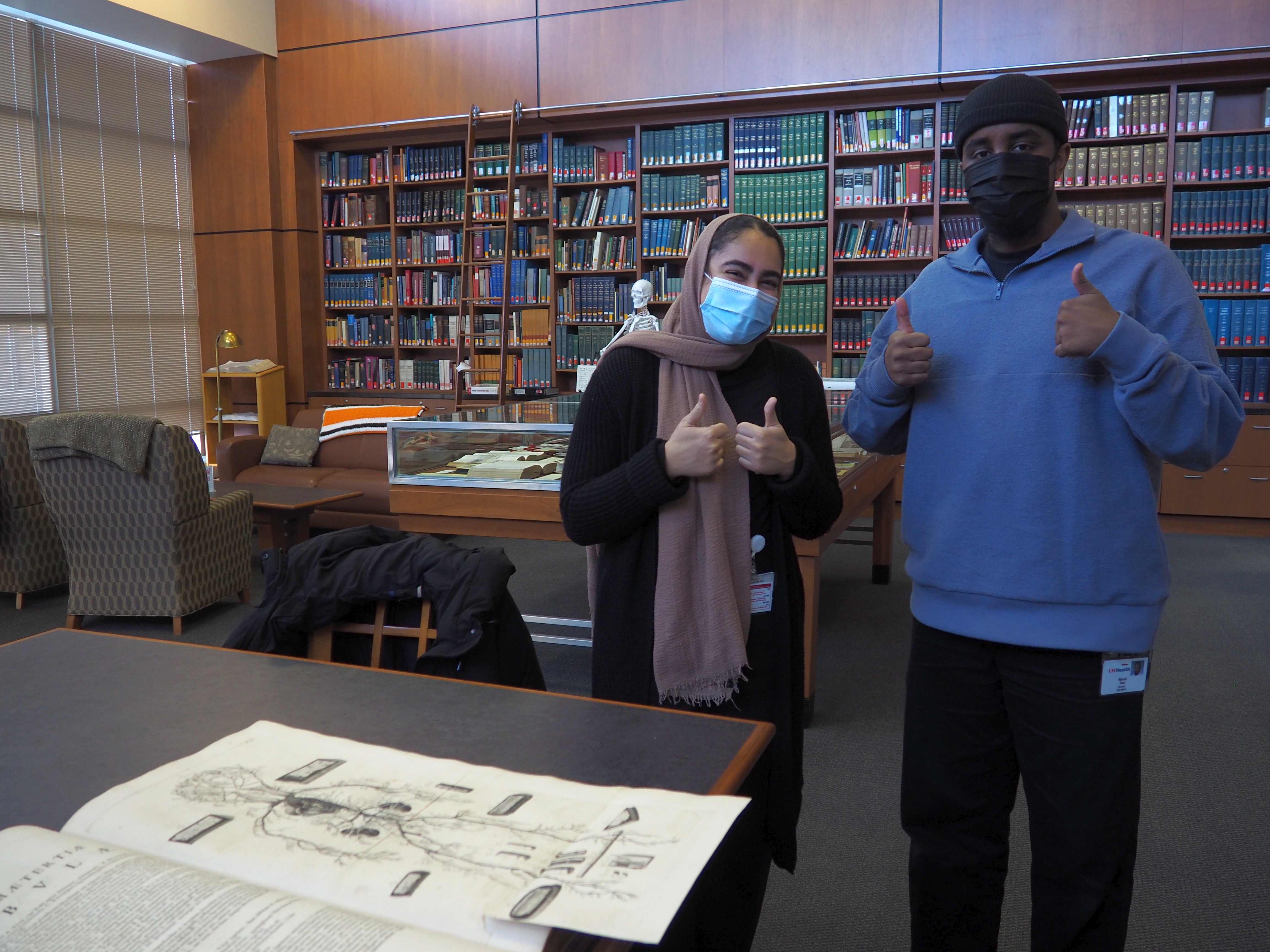
158 Resources to Understand Racism in America
Compiled by Meilan Solly, “These articles, videos, podcasts and websites from the Smithsonian chronicle the history of anti-black violence and inequality in the United States.” –Description from Smithsonian Magazine
AAMC Racism and Health: A Reading List
“This nonexhaustive collection of select research articles and books, both seminal and new, describes how racism affects health and well-being and offers a starting place for further exploration.” –Description from the Association of American Medical Colleges
AHRQ National Healthcare Quality and Disparities Reports
“Tools for measuring healthcare quality, including the National Healthcare Quality and Disparities Reports, Agency for Healthcare Research and Quality’s Quality Indicators, and ambulatory clinical performance measures.” –Description from AHRQ
American Medical Association’s Advancing Health Equity: A Guide to Language, Narrative and Concepts
“Designed for physicians and other health care professionals, the Advancing Health Equity: A Guide to Language, Narrative and Concepts provides guidance and promotes a deeper understanding of equity-focused, person-first language and why it matters.”
American Psychological Assocation’s Inclusive Language Guidelines
“These inclusive language guidelines are written for those working to champion equity, diversity, and inclusion in the spaces that they learn, teach, work, or conduct research.”
Anti-Racism and Healthcare Research Guide
University of San Francisco research guide containing resources for anti-racism as it relates to healthcare.
Anti-Racism and Race Literacy: A Primer and Toolkit for Medical Educators
Toolkit authored by Andrea Jackson, Meghan O’Brien, and Rachel Field. “In this toolkit, we seek to provide a structured approach to equip new and existing faculty with the tools to engage learners in topics of health disparities, social justice, bias, and racism in the classroom and clinical environment.” –From the document
Anti-Racism Resources
Compiled by Sarah Sophie Flicker and Alyssa Klein. Contains books (for children and adults), documentaries, podcasts, movies, TV, and links for learning more about promoting racial justice.
Anti-Racism Toolkit: Curricula
Toolkit from the Association for Prevention Teaching and Research. Includes resources on the structural causes of racism and inequity, teaching cultural competence, and teaching and addressing privilege.
Anti-Racist Resource Guide
This guide by Victoria Alexander provides resources for anyone looking to broaden their understanding of anti-racism and become more involved in combating racism.
Bystander Intervention Training to stop anti-Asian/American and xenophobic harassment
“In response to the rise in Anti-Asian/American and xenophobic harassment, we at Hollaback! partnered with Asian Americans Advancing Justice | AAJC to adapt our free bystander intervention training as well as offering a de-escalation training to meet this moment.”
CDC’s Health Equity Guiding Principles for Inclusive Communication
“This is a living document which will be adapted as both language and cultural norms change. This is not a style guide and is not meant to be prescriptive or exhaustive, but rather to provide principles, resources, and specific suggestions on a variety of topics to help inform an inclusive approach to public health communications. These guiding principles reflect the best practices as we know them at CDC.”
The Joy Trip Project
From the site, ” newsgathering and reporting organization that covers outdoor recreation, environmental conservation, acts of charitable giving and practices of sustainable living.” They also encourage diversity, equity, and inclusion in outdoor recreation.
The Micropedia of Microagressions
“The Micropedia aims to collect everyday microaggressions and highlight their harmful impact through source-based definitions and real-world examples.”
Racial Equity Tools
With a library of over 3,200 resources, Racial Equity Tools “offer tools, research, tips, curricula, and ideas for people who want to increase their own understanding and to help those working for racial justice at every level – in systems, organizations, communities, and the culture at large.”
Smithsonian Asian Pacific American Center: Learning Together
“At the Smithsonian Asian Pacific American Center, we have collaborated with Asian American women who generously share their perspectives and insights with us. We are using this space to introduce them, their stories, and their humanity. In the coming days and weeks, this page will feature more resources illuminating the humanity of Asian and Asian American women, by Asian American women. In the meantime, please read and listen to the women we have had the great privilege of connecting with on matters ranging from restorative justice to coping with tragedy.”
Stop AAPI Hate
“In response to the alarming escalation in xenophobia and bigotry resulting from the COVID-19 pandemic, the Asian Pacific Planning and Policy Council (A3PCON), Chinese for Affirmative Action (CAA), and the Asian American Studies Department of San Francisco State University launched the Stop AAPI Hate reporting center on March 19, 2020. The center tracks and responds to incidents of hate, violence, harassment, discrimination, shunning, and child bullying against Asian Americans and Pacific Islanders in the United States.”
Stop AAPI Hate National Report
“This report covers the 3,795 incidents received by the Stop AAPI Hate reporting center from March 19, 2020 to February 28, 2021. The number of hate incidents reported to our center represent only a fraction of the number of hate incidents that actually occur, but it does show how vulnerable Asian Americans are to discrimination, and the types of discrimination they face.”
Talking About Race Web Portal
Created by the Smithsonian National Museum of African American History and Culture. Provides tools and guidance for starting and inspiring conversations about race.
UnBIASED
“This 5-year project, funded by the National Library of Medicine (NLMR01LM013301), is a collaboration between the University of Washington and the University of California San Diego. Our ultimate goal is to create tools to support patients and the next generation of doctors to have bias-free interactions that promote healthcare access, quality, and equity”